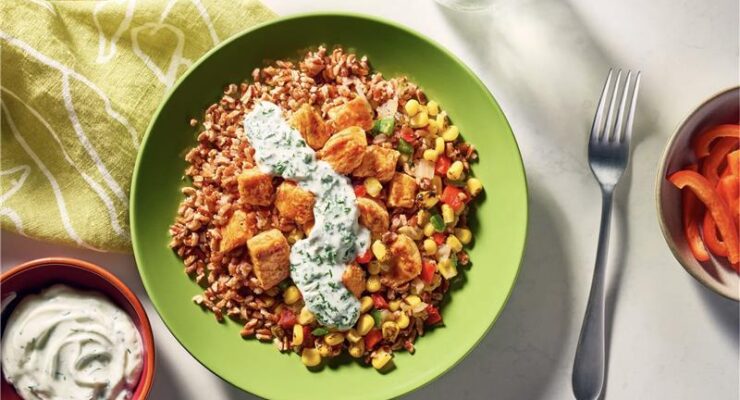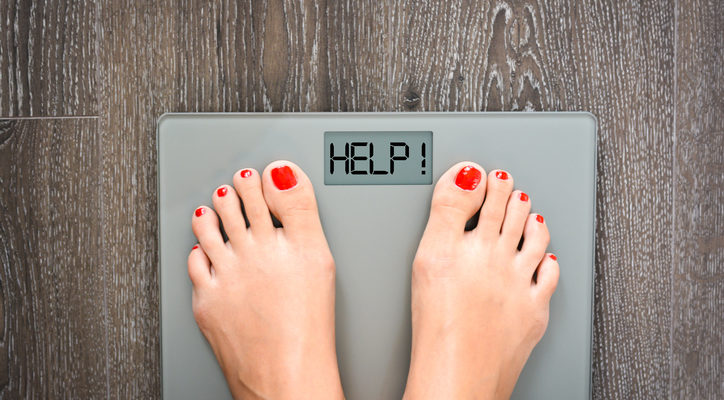4 Reasons Men Lose Weight Faster Than Women
Article posted in: Lifestyle
When couples exercise and diet to lose weight together, they tend to stick to their diet plan: In a study from Indiana University, couples that hit the gym separately dropped their health club memberships at a rate of 43 percent over the course of a year, while just over six percent of those who exercised at the same gym dropped out during that same time frame.
But do men really lose weight faster than women? Yes, men seemingly start losing weight faster than women, which can be frustrating. If you’re both following your weight loss plan, why would there be such a disparity in the results? How long does it take to lose weight?
Well, there are a bunch of reasons your husband could be losing weight faster, and they’re not your fault. However, if you’re aware of them, you can make small changes that help close the results gap.
1. He burns more calories when he’s doing nothing.

Even when differences in body composition and weight are factored in, women burn five to ten percent fewer calories while sedentary than men. So just sitting around, he’s burning more calories per pound of body weight than you.
What a bummer! Changing your metabolism by 10 percent would be a big task, but you can make sure that your body is functioning at its optimal metabolism. Do the 8s: Eight hours of sleep and eight glasses of water.
Losing sleep can affect your body’s ability to metabolize fat and reduce your ability to regulate your blood sugar. According to a 2015 study by the University of Chicago Medicine, just three nights of bad sleep can start to have deleterious effects. And when your body doesn’t have enough water, your energy systems don’t work as well, either. So, don’t wait to drink until you feel thirsty.
You may not even realize you’re in need of a drink. In studies, most athletes don’t experience feelings of thirst until they’ve reached dehydration at two percent of their body weight—a level at which your body’s performance has already been hindered.
2. He has more muscle mass than you do.

On average, men have about 25 more pounds of skeletal muscle than women, and more muscle relative to their body mass: According to a study of 468 men and women of varying sizes and ages, men were 38.4 percent muscle compared to 30.6 percent for women.
This matters because muscle burns calories. You may have heard that a pound of muscle burns 50 calories more per day than a pound of fat does. That’s not true, but muscle does burn about 13 calories per pound every day, while at rest.
So, if your husband has 25 more pounds of muscle than you do and you do the same level of activity, he’s burning an extra 325 calories per day. That’s a significant dent. And if you’re working out, each pound of muscle is burning even more during the workout.
What you can do: Close the muscle gap. In addition to diet plans to lose weight and aerobic exercise, start strength training. You’ll build muscle to burn more calories when you’re resting, too.
3. If you both eat a “diet plan portion” of something, he’s still eating less relative to his calorie needs.

Let’s say a 35-year old, 5-foot-10 male with a desk job, weighing 250 pounds (BMR 2020) and his 5-foot-6 wife, who weighs 180 pounds (BMR 1528) each order a 700-calorie burger, but they only eat half. It’s admirable! And, with such a large portion, a smart choice!
But it’s a bigger boon for his weight loss: In the case of our 250-pound guy, his basal metabolic rate—the number of calories he burns just from normal processes like breathing and pumping blood—is 2,020 per day.
So having a 350-calorie meal only takes up 17 percent of his minimum daily calories. For the woman in this example, the same burger eats up 23 percent of her daily calories. So while the portion is small, it’s easier for him to eat it and still wind up at a caloric deficit for the day—and finishing the day with a caloric deficit is how you lose weight.
Equating portions could be why women gain, on average, about seven pounds in the first year of a relationship. If your bodies aren’t the same size, your portions can’t be the same to see the same results. Sticking to the perfect portion (with options like a Nutrisystem meal or snack) in your specific diet guidelines is the way to go. Measure your portions of store-bought foods so that they fit your specific diet plan, instead of doling out equal amounts. And if you split a dessert, don’t go 50-50—leave a bite or two of your half behind.
4. He doesn’t eat as much when he’s emotional.

Before you get angry (and then hungry), there’s science behind this: A 2009 study found, using brain scans, that women were more likely to react with hunger when under emotional duress, and thus more likely to overeat in those situations.
Being mindful of what you’re eating and why you’re eating it can help. When you’re stressed and a craving strikes, try to recognize it and ask yourself if you’re really hungry, or just need a break. If it’s a break, try taking a walk, calling a trusted friend to talk through the problem or watch a funny video to relax. If only food will fix it, be mindful when you’re eating, too.
Distracted eaters require more taste sensations to feel satisfied with their food: More saltiness, more sweetness or more crunch. A Dutch study found that participants had a harder time determining the sweetness of a beverage when they were also trying to concentrate on a mental task.
Eating without distraction and concentrating on the food’s flavors is called “mindful eating,” and lots of studies have shown that this eating style can improve weight loss efforts without focusing on calories. It can also help with disease: An Ohio State study found that three months of mindful eating helped diabetes patients lower their blood sugar. So sit down and eat that awesome Nutrisystem snack (or whatever it may be), and focus on the deliciousness of every bite!
Most of all, stop stressing if your husband is losing faster than you are: Not only is the stress making you eat more, but it takes enjoyment out of the weight loss success you are having. You’re not in competition, but partners on a journey to a happier, healthier life. Celebrate your weight loss success, his success and be grateful for the steps you’ve taken so far.
And if you haven’t tried Nutrisystem, that could be the missing piece: Get started with Nutrisystem today!















